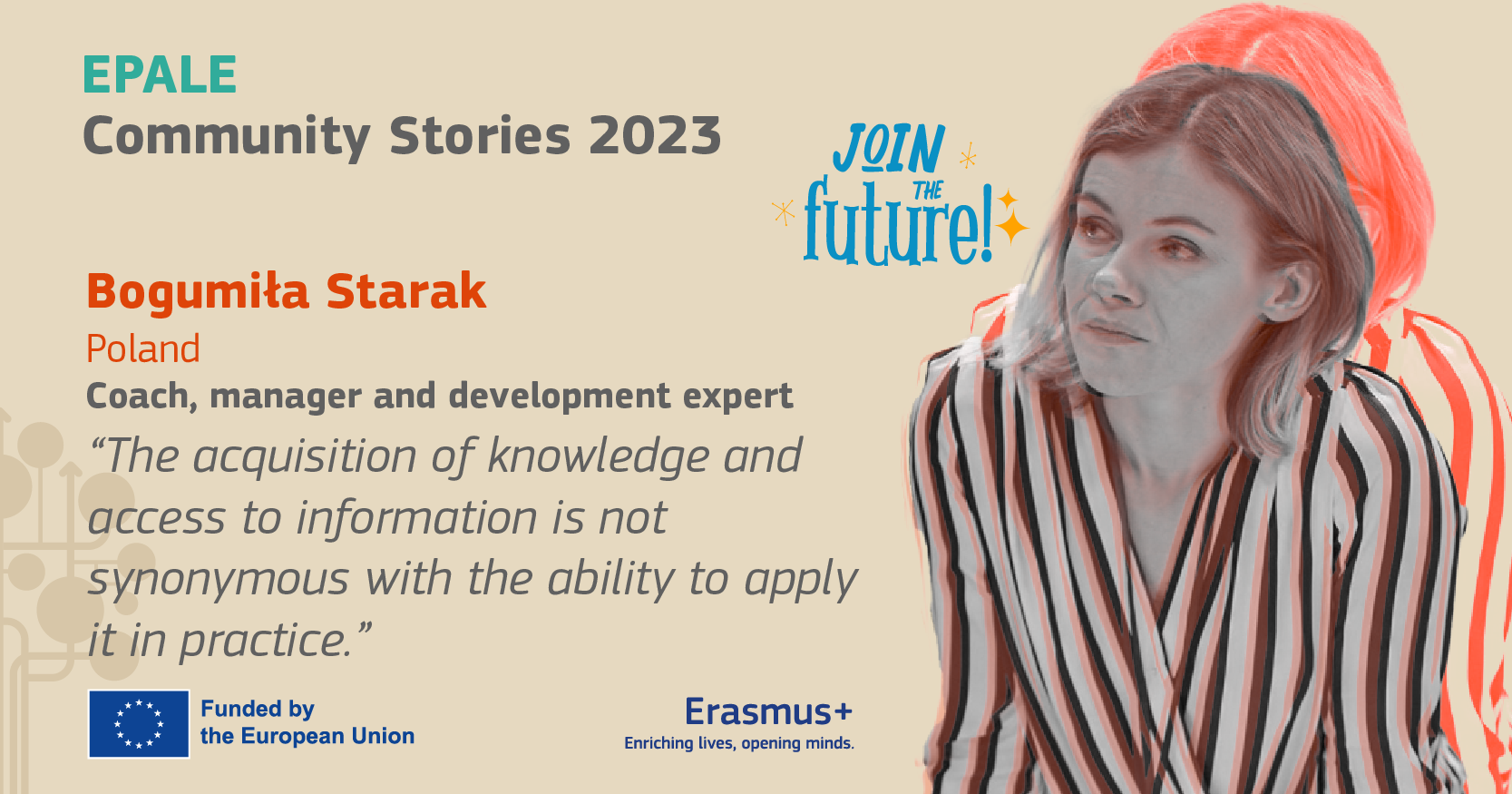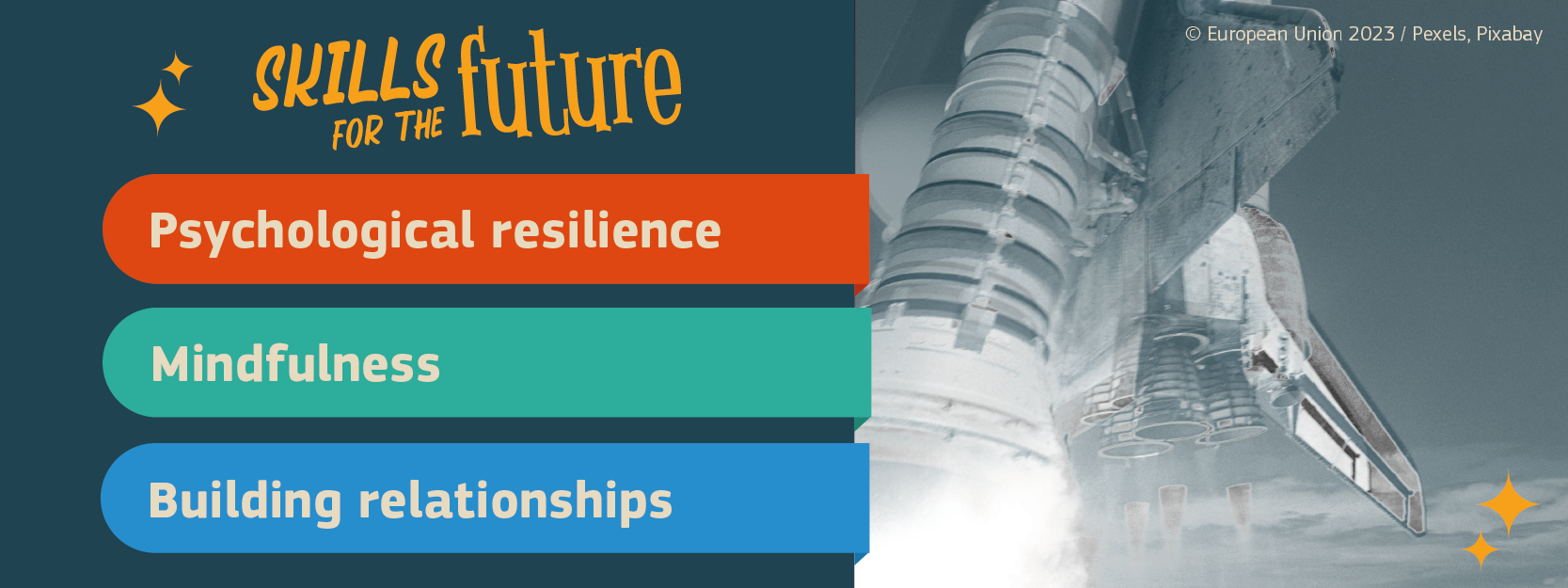Bogumiła Starak: Choosing wisely from the palette of available options

Short bio
I am a coach, manager and development expert. Since 2008, as an external and internal expert, I've been implementing development projects for companies in various industries. I focus on helping managers and teams by strengthening their behavioural competencies. I'm a psychologist (University of Warsaw) and management expert (Warsaw School of Economics, SGH). I also studied Psychodietetics at SWPS and Facilitation at the Jagiellonian University.
My story
Adult learning is essential for virtually every aspect of our lives, starting with work and the ability to take on different, including new professional roles, but also increasingly for health, a sense of security and daily social functioning.
Learning can have an impact on improving the quality of adult life.
The dynamic reality around us even forces adults to enhance their qualifications and skills proactively. The concept of lifelong learning is not a new one. In an era of rapid change, the need to cope with an excess of often contradictory information, automation and the digitalisation of many areas of life, the lifelong learning approach is becoming even more desirable. It is up to us, those involved in education and development in the broadest sense, to make this concept a reality in practice. As never before, we can participate in any form of learning from any corner of the world: online courses, social networks, videos, podcasts, expert blogs, learning platforms, solutions based on artificial intelligence and more traditional forms of learning. In these places, we can access virtually unlimited knowledge in any field that interests us, often for free or a token cent.
An increasing challenge in adult learning is choosing wisely from this palette of available options for acquiring knowledge. Because, unfortunately, quantity does not always translate into quality.
The acquisition of knowledge and access to information is not synonymous with the ability to apply it in practice. Moreover, skill alone does not always overcome the barrier of habits and beliefs, which we adults have a lot of. At the same time, we, and our employers, are noticing more and more that we need to balance development in the different areas of our lives. That emphasis on developing only strictly professional competencies does not necessarily translate into a person’s effectiveness and commitment at work.
This is why the role of professional development practitioners will continue to grow. The task of today's educators is, first and foremost and invariably, to ensure the creation of valuable and reliable content, knowledge and selection of diverse and appropriate forms of education tailored to the target group, as well as knowledge of the psychological conditions of modern human functioning.
The educator, in particular, having direct contact with learners and having the opportunity to identify their key developmental needs, should make a sound selection of the material, delving deeper into the topic under discussion. Instead, they should not focus only on a cursory and broad overview, which everyone can easily find at "the click of a button" in the available sources. At the same time, an educator who supports the learning of a specific group of learners should be like a signpost. They should guide the participants to use the knowledge or skills they have acquired in practice without wasting time on what is already outdated and has been improved in other ways. Show them how to develop further, design the learning process and show them where to look, what content to look for, and what to pay attention to when learning so they do not get stuck in information chaos.
Looking at the adult holistically, as a working person with a private life, psychological and health conditions, it is not enough for educators to base competence development on knowledge, skills and experience building alone. A good trainer should be able to get to the motives of the learner and their sources of possible resistance, notice what is going on between the words and respond to it adequately.
Due to the rapid development of learning, the growth of knowledge and changes in the environment, adult education is a requirement of the modern age. The role of educators is to accompany learners on this journey by pointing out opportunities, sound selection of material, deepening critical issues in direct contact and taking a holistic approach to adult development.
3 Skills for the future?

- Psychological resilience: to benefit from the potential of dynamic change
- Mindfulness: to respond to the multitude of stimuli that reach us
- Building relationships: to counter the growing sense of loneliness



